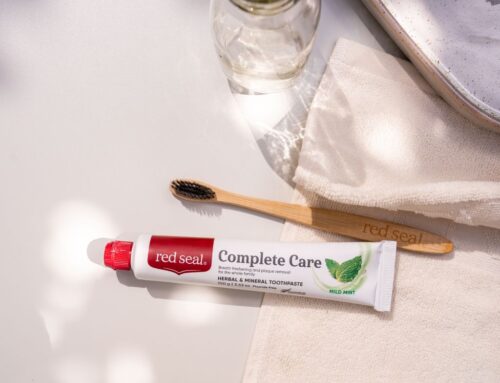Everyone wants to think they are doing everything they can to live a long and healthy life – but you may be surprised to learn that are simple everyday things you may be doing to take years off your life. But by making some simple lifestyle changes you can easily improve your general health and extend your lifespan.
1. Not getting enough sleep
Lack of sleep can be the cause of a surprising amount of poor health. Without enough sleep each night – adults should be aiming for eight hours each night – your metabolism will slow and cause you to gain weight. Your immune system will be lowered which hinders your ability to fight off infection and disease. Fatigue can also impair your memory and ability to focus which puts you at a higher risk of driving accidents.
2. Not flossing each day
Now we all know that regular flossing will keep our gums healthy and our teeth strong, but research has also shown that flossing each day can protect you against heart disease. When flossing doesn’t occur, bacteria can build up in the mouth and then enter the bloodstream which, in some cases, leads to the development of atherosclerosis (hardening of the arteries).
3. Not getting regular check-ups
It’s not enough to simply feel healthy and well – all women should have a regular medical check-up with a GP. This check-up can quickly monitor cholesterol, blood sugar, blood pressure and cardiovascular health. On top of this, taking the time to do the relevant screening tests – pap smears, mammograms, bone density, skin checks – when they are due will give you the best chance of early diagnosis of any problems. Talk to your GP about which screening tests should be done at your age and then follow through and get them done.
4. Not keeping socially active
Being socially engaged with family and friends is not only a great way to live a rich and varied life, research also show that by staying interested and connected with other people, you can reduce the risk of developing dementia and Alzheimer’s disease.
5. Worrying too much
Excessive worrying can have a detrimental effect on your body – worrying creates stress, which in turn, can trigger your body’s ‘fight or flight’ response and result in a hormone called cortisol being released. If we are constantly experiencing high levels of stress or worry, without allowing our body to activate a relaxation response, the high levels of cortisol in the bloodstream can have detrimental effects on our general health including weight gain, high blood pressure, lower immunity and suppressed thyroid function.
6. Not keeping your brain active
Research has shown that staying mentally active is good for the brain – and can keep lower your risk of Alzheimer’s later in life. For good brain health, you need to keep it busy with new challenges. You don’t need to enrol in a master’s degree; just doing memory exercises, puzzles (crosswords are excellent), reading, writing and staying curious and involved is enough to stimulate your brain.
7. Getting too much sun exposure
Growing up in New Zealand, it would be impossible to miss the Slip Slap Slop message designed to keep us sun safe – but because much of the damage to skin is done during the teen years (when we believe we are going to live forever), it is important to get your skin checked by your GP and then to use sunscreen whenever you are exposed to the sun.
8. Not getting enough calcium
Calcium is essential for good bone health and the prevention of osteoporosis later in life. Because most of our growing and bone development is done by the age of 20 years, our calcium absorption is at its peak during these years. After around the age of 30, our bodies begin draining the calcium stores in our bones to keep our nervous and cardiovascular systems working in good order. And this draining process is accelerated during pregnancy and breastfeeding as our bodies provide the calcium for building baby’s bones. Adults aged 19-50 should receive 1000 mg of calcium a day, and adults over age 50 need 1200 mg per day. If you aren’t getting enough calcium in your diet, you should take a calcium supplement to ensure strong bones and no fractures later in life.
9. Not exercising enough
Do you know how much exercise is really necessary to have a beneficial impact on your general wellbeing? You should be doing 30 minutes of aerobic exercise (exercise that noticeably accelerates the heart rate for at least ten minutes) at least five times a week. You can break the 30 minutes up into 10 minute increments but anything less than 10 minutes doesn’t count as aerobic activity. Brisk walking, bike riding, swimming and jogging are easy ways to get the exercise you need. Be aware though, that if you can comfortably carry on a conversation while exercising (walking or jogging with a friend perhaps), you are not exercising hard enough!
10. Not getting enough me-time
Despite the fact that many women feel guilty taking time out for themselves, getting (and enjoying) time out for you is an important part of maintaining general good health. By ensuring you have down-time, you are recharging your batteries, relaxing and investing in your own good mental health. Women who make themselves slaves to their family and put other commitments ahead of their own needs tend to suffer from chronic fatigue and stress.






Leave A Comment
You must be logged in to post a comment.